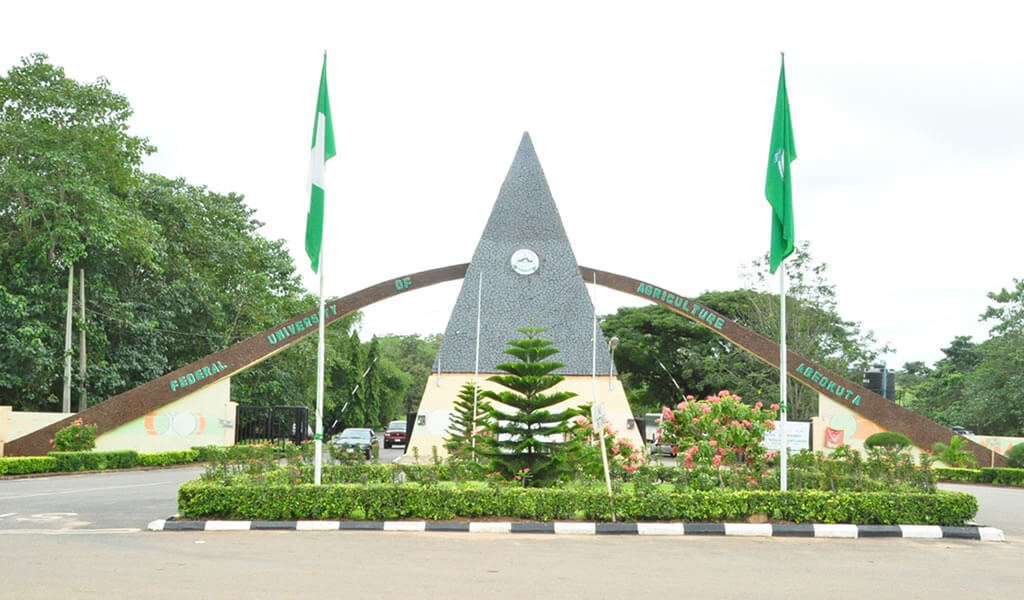Background Information
Agricultural Extension and Rural Development as a sub-discipline in the Agricultural curriculum provides training in the techniques of delivering technical agricultural skills to the users. It is a core area, which cuts across all other discipline. Its need in the overall training programme underlines the importance of the knowledge of the processes and methods of planning the delivery of agricultural technologies.
The Department of Agricultural Extension and Rural Development was established in 1988 from the philosophy of the University’s mandate to enrich the Bachelor of Agriculture Programme with agricultural extension communication practices and rural sociology. This is an important aspect of the programme and it provides opportunity for students to have first-hand training in practical extension knowledge.
Today, the Department of Agricultural Extension and Rural Development is one of the four Departments in the College of Agricultural Management and Rural Development (COLAMRUD). The Department offers programmes leading to the award of Bachelors, Postgraduate Diploma, Masters and Doctoral Degrees in Agricultural Extension and Rural Development, Agricultural Communication, Rural Development and Subject Matter Extension.
The mandate of AERD is to produce quality graduates of agricultural extension, rural development and innovation studies fully equipped to manage farms, extend knowledge and develop policies towards revitalization of the agricultural sector of the country. This mandate is towards the vision of developing young and skilful agricultural manpower of the country. The department also has mandate in conducting cutting-edge research in agricultural management, administration and rural innovations and make such knowledge available for relevant stakeholders in making managerial and policy decisions.
Objectives
Towards these mandates, the Department has the following goals:
1. To train competent future leaders for the agricultural sector, government establishments and society, who are sensitive to socio-economic needs and dedicated to providing solutions to pressing agricultural and economic problems of the country.
2. To produce graduates that are relevant to themselves, the industry and society and who can contribute effectively to national development goals in Agriculture.
3. To develop knowledge and skills needed for equipping students for the job market and for self-employment in the agriculture sector
4. To provide an environment conducive to departmental faculty in conducting cutting-edge research and having needed international exposure
5. To encourage inter-disciplinary cooperation in research among Staff and other external affiliations
Mandates And Activities
Agricultural Extension Services world over, have improved significantly, making contributions to agricultural and rural development. In Nigeria, the extension service system needs to undergo significant change to effectively serve the food security and increased productivity needs of resource-poor men and women farmers in the country. To this end, the Department of Agricultural Extension and Rural Development is refocusing its training programmes towards contributing more specifically in the areas of innovation studies and rural development strategies to make it more relevant in the emerging global development. This will also enable the department to become more relevant in the global agricultural extension forum.
In this pursuit, teaching, research and extension activities of the department shall, with effect from 2014/2015 academic session, be organized under two units, namely:
i. Agricultural Extension and Innovation Studies (AEIS)
ii. Agriculture and Rural Development Studies (ARDS)
The AEIS Unit shall be responsible for teaching, research and extension services in the area of innovation studies, communication technologies and modernized extension services. The need for the unit was borne out of recognition of the fact that agricultural development depends largely on innovation systems, and is a major source of improved productivity, competitiveness, and economic growth throughout advanced and emerging economies. Agricultural Innovation plays an important role in creating jobs, generating income, alleviating poverty, and driving social development. The unit will give specific attention to understanding the conditions under which communication processes can be effective and how agricultural extension can utilize communication strategies and technologies in promoting agricultural innovations for development. The Unit shall coordinate the B.Agric. Option in Agricultural Extension and Innovation Studies.
The ARDS Unit shall be responsible for teaching, research and extension services in the area of agriculture and rural development policies, including issues and strategies towards promoting sustainable livelihood options, poverty alleviation, and rural economy. The need for the unit was borne out of the need to train rural development experts that are equipped with knowledge in theory and methods for development studies, political economy and political sociology, agrarian structures, and rural-based social movements, among others. This programme will also offer its graduates unique opportunities in understanding the dynamic interactions between agriculture on one hand and rural livelihoods, rural policy and rural politics, on the other hand, to strengthen students’ analytical skills and to transfer key professional skills of relevance to work on rural development and agriculture.


